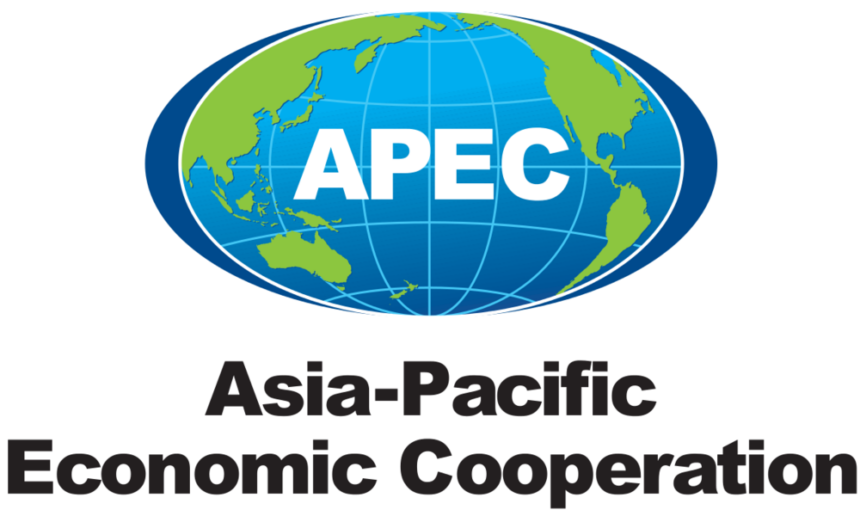President Elbegdorj has repeatedly requested Russia and China to support Mongolia in joining the Asia Pacific Economic Cooperation Forum (APEC). The requests were made during the recent presidential visits and after the trilateral summit that took place in Dushanbe following the Shanghai Cooperation Organization conference last week.
APEC was established 25 years ago in response to the growing interdependence of economies in the Asia-Pacific region. Currently, almost every country that has a coastline on the Pacific Ocean is an APEC member. APEC has a total of 21 member countries, which are home to 2.8 billion people and account for approximately 57 percent of global GDP and about 47 percent of world trade.
APEC is working highly efficiently in promoting regional integration and their member countries have been implementing carefully planned, step-by-step actions to reduce tariff and non-tariff trade barriers upon mutual agreement. The member countries are working to support open and free trade, promote investment, ensure alignment of reforms in economic structure, and boost free exchange of people, goods, and services.
In 1989, the real GDP (PPP) per capita of APEC member countries was 7,969 USD, which doubled in 2011 to reach 14,271 USD. In comparison, GDP per capita increased only by 30 percent from 5,857 to 7,678 USD in non-member economies in the same period of time.
APEC conducts its operations as a cooperative, multilateral economic and trade forum. In order to open up its economy and promote economic growth, member economies implement actions plans individually and collectively. The action plans and their progress are proposed to and approved by Senior Officials Meeting, Ministerial Meeting, and Economic Leaders’ Meeting.
Approximately 80 percent of Mongolia’s international trade and 80 percent of investment are accounted for by APEC member countries. Besides Mongolia, about 10 other countries such as India and Colombia applied for APEC membership many years ago. However, APEC refused to greatly increase the number of member countries in 1997 and stopped accepting new members for 10 years until 2010.
Currently, Mongolia has expressed an interest to join APEC at all levels and has made individual engagements with each member country for support. Mongolia has an expectation that other countries would support our bid at the next APEC summit to be held in Beijing next month providing that President of China initiates discussions around our potential membership for the organization. However, it is more likely for APEC to discuss about the timing and procedures of accepting new members rather than talking about Mongolia. The main reason why many countries are seeking APEC membership is that they have no choice but to boost their trade and investment relations with neighboring countries and expand their market in the globalizing world we find ourselves in. APEC provides the opportunity for countries to conduct relations with their neighboring countries based international norms rather than historic relations and conditions.
There is a saying in the East – “If you want to go fast, go alone. If you want to go far, go together.” Although Asia does not yet have the conditions for a union to be formed as in Europe, countries have become keener on working together and several organizations for regional cooperation have been established. APEC has seen some success as a regional organization that has been working most efficiently, utilizing the benefits of information technology, collectively discussing common issues, and regulating their operations for alignment.
APEC leaders had a meeting in 1994 in Bogor, Indonesia, and committed to achieve open and free trade and investment in industrialized economies in the Asia-Pacific by 2010, and in developing economies by 2020. Every member country has been reporting their progress ever since the Bogor meeting. Furthermore, member countries have been making dozens of proposals and initiatives that are actively supported by others. The initiatives include supporting small and medium enterprises (SMEs) enter international value chain, promote cooperation between universities, facilitating free movement of academics, ensuring food safety, improving the quality of infrastructure, building capacity in infrastructure development (e.g. member countries using the same connection when using electric vehicle charging cable), supporting women entrepreneurs, developing the internet economy, and operating e-training centers.
One might have noticed that there is an APEC line at the customs areas of international airports. Currently, more than 100,000 business delegates from APEC member countries use an APEC business travel card (ABTC) to travel without visas to member countries, which really helps the private sector.
By joining regional integration and becoming a member of an organization like APEC, Mongolia can expand its market and achieve sustainable economic development in the long term. As our economic cooperation is expanded, we will face the need to keep our traditional culture and heritage, and establish a product brand based on our uniqueness.
Mongolia became an associate member of the Pacific Economic Cooperation Committee (PECC), an organization initiated by APEC, and acquired full membership in 2008. Through this membership, Mongolia has the right to take part as observer in every meeting or summit except for APEC summits.
Becoming an APEC member will consolidate the conditions for Mongolia to conduct the relations with the two big neighbors on international norms. Furthermore, APEC membership will substantially support Mongolia’s public governance institutions strengthen, prepare the workforce, and operate on international standards. Also, it will greatly help our private sector expand their business operations at regional level. This is why our president is seeking for APEC membership.
2014.09.17












